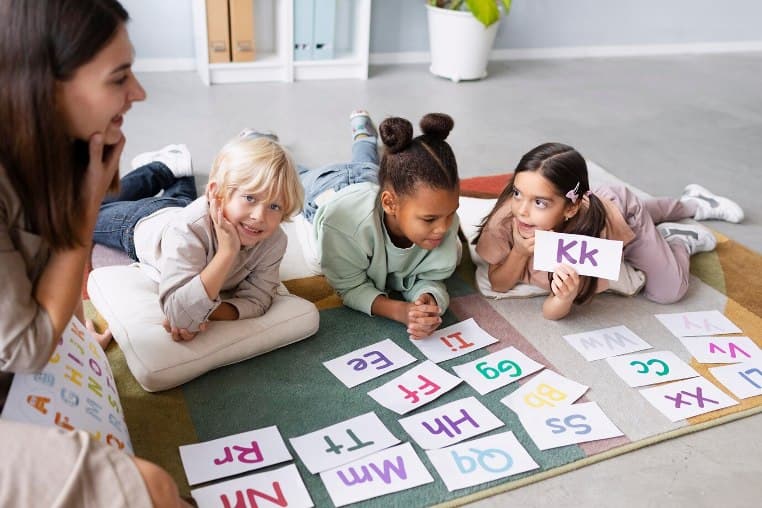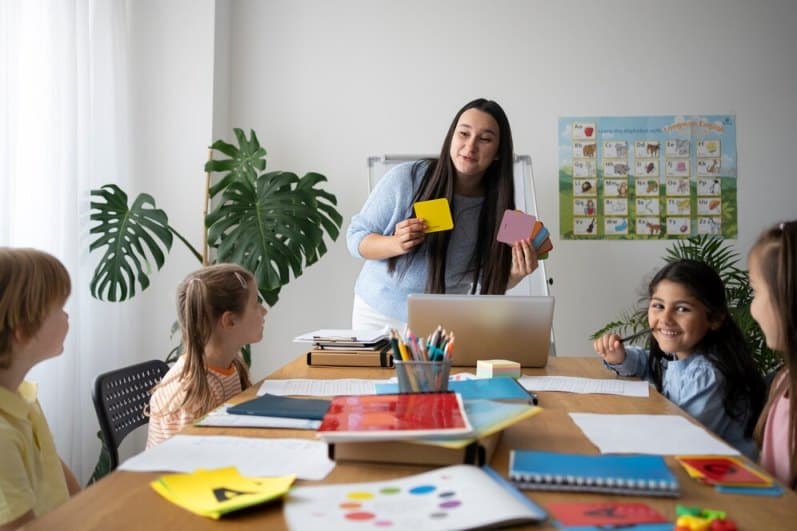Are you a teacher and want to innovate in your way of teaching? Know below 5 effective strategies that you can apply in the classroom to keep your group of students motivated.
Teaching is one of the most changing professions. This is because educational tools evolve with technology, and each generation of students is different from the other. That is why teachers have to adapt and innovate continuously and seek new ways for students to assimilate knowledge. To know 5 useful strategies to apply in your classroom.
A New Zealand education research expert, John Hattie, conducted an essay on how to increase the impact of learning. Their goal was for teachers to better understand the learning process through the eyes of their students. His findings were the result of 15 years of research.
He emphasized that the way students learned, depended in part on the way teachers proceed in the classroom. In other words, the success of student learning was linked to how good the strategies were applied by teachers. Here are 5 effective strategies that he mentioned:
1. Explain things clearly
For a student, there is nothing worse than feeling lost in class. To have no idea of the subject they are giving, nor knowing what is next to what they are going to give, discourages them enormously.
This is why the teacher has the task of presenting the study plan, the units that are going to give from the first day, and committing themselves to make the same mechanism whenever a new topic is to begin. In this way, the students know what is expected of them and what they must do to be successful in that class.
2. Allows the exchange of ideas
Attending class to be a passive agent is no longer a possibility. Students are accustomed to social networks where they can constantly give their opinion and comment on everything.
That is why this dynamic must be used in the educational area. Teachers have to step back from time to time in order to allow students to exchange ideas. The round trip allows them to learn from each other and is a good opportunity for the teacher to see if they really understood the concepts and contents that they are giving.
Read More: Social and Emotional Learning
3. To do returns whenever you can
Of course, it is easier to take your homework, correct them and return them to the next day with the qualification, but it is not the most effective option.
In order for the students to know if they are really moving forward and improving, you are the one in charge of giving them a refund on what they did. One way to do this is to talk to the whole group and to point out the weaknesses they still have and how they can be improved.
4. To carry out assessments on the training process
In addition to the classic exams and tests to evaluate what they have learned, you will need to take assessments to analyze the training process of your students.
Compare the performance they are having to the goals that should be met according to the objectives planted from the beginning. To do this can often adapt the materials and the speed with which it is advanced. You can even ask them to evaluate your behavior.
See More: keys to implement before, during and after taking test
5. Encourage self-reliance of your students
You should give your students opportunities to learn how to organize, create their own action plan, and evaluate their own work. By being aware of their way of thinking and acting at the academic level, they manage to modify behaviors and achieve greater achievements than if you are on top of them and compelling them to do so.



